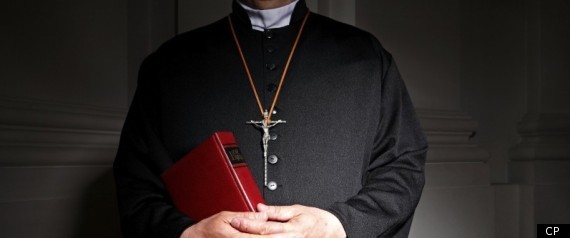[soundcloud url=”https://api.soundcloud.com/tracks/123057167″ params=”color=ff6600&auto_play=false&show_artwork=true” width=”100%” height=”166″ iframe=”true” /]
Videos by Rare
William Paul Young, author of “The Shack,” joins Kurt Wallace in a series of interviews to discuss aspects of the book that has sold over 18 million copies worldwide.
In part 2 of this interview, “An unexpected shared language,” Paul shares how his book has impacted those who are not Christian including atheists, Jews, Muslims and new age.
Kurt Wallace for Rare: This is a next in a series of conversations with William Paul Young, author of “The Shack.” To hear more, please see the links below.
One of my favorite parts in the book is when Papa calls Mac an idiot. It’s just brilliant.
William Paul Young: And a liar.
Kurt Wallace for Rare: Right?
William Paul Young: This is the deal, you know? It’s kind of like — I’ve never heard a swear word, right? So yeah, and every time you do, you’ve got to turn your back on you or something.
Listen, yeah, we won’t even go there, but this is about – we’re talking about a relationship with person, and not just, three persons who share such integration within their character and nature and their uniqueness that it’s called one-ness. You know, that there is one God, but there are three persons, so this issue of relationship, for me, is centered on the reality that there has always been relationship within the character of God, otherwise we don’t have a real basis for either love, which is other-centered and self-giving, or relationship. And so that becomes very central to me and it just happens that that’s pretty orthodox theology, too. But it’s the only thing that makes any coherent sense. And I love that.
Kurt Wallace for Rare: The way that “The Shack” reads, and I’ve actually made the mistake, I’ve actually called your book The Gift. I don’t know why, maybe that’s a, I don’t know. But to me, it is a gift. But in the book “The Shack,” you have a way of disarming some of the preconceived ideas of religion. And I’m kind of curious with people that are of other religions or they’re non-Christian or don’t have a religion, could you tell us about the relationship that they’ve had with the book, and the response you’ve gotten from people that aren’t Christian?
William Paul Young: Oh, it’s across the board. It doesn’t seem to matter whether you’ve got any religious background or frame of reference — whether you’re agnostic or atheist. I just wrote the foreword for two guys — one’s an atheist and the other’s a pastor — who are really close friends with each other. And they’ve written a book called “Saving Casper,” a follow up to their book, “Jim and Casper go to church.” And Matt Casper’s the atheist, and he loves “The Shack.” I’ve got lots of friends within the Jewish community that love “The Shack.” And you go, well, you know, Jesus is sort of a central figure. I said, that’s okay, because the character of God that’s revealed there is so consistent with the Judaistic frame of reference. I’ve got people who are coming from the Muslim world or from New Ages, it wasn’t that big of a step, but I get to speak at New Age conferences, because I’m the person that can talk about that there is person and relationship with the intimate context of God.
And it’s just sort of bridged all these gaps — who knew, right? Because the publishers didn’t know. I didn’t know. What it did is it gave people a language to have a conversation about God that wasn’t religious. It was relational. And all of a sudden, people in their own families, regardless of their history, religious or not, now — they had a language. They could talk about it. And if you ran into somebody who was reading “The Shack,” you knew you could have a conversation, because you had shared language now, and that’s one of the greatest gifts that this book has given — unanticipated and unexpected and really thrilling and beautiful, you know? Who else gets invited to the National Conference of MENSA, to the Atheist Book Club, to Southern Baptist Conference mega churches, you know? It’s so cool.
Kurt Wallace for Rare: The thing about this is, what’s interesting about your story, you wrote this for your children. You wrote it just to write it and to get it out — get your ideas out and the way that you see things, right? And had somebody set out to do what has happened, it wouldn’t have had what it has in it, probably.
William Paul Young: Yeah. You know, and so I tell people, you have to understand, for the first 15 copies, it did everything that I wanted it to do. That’s really important. The second thing that’s really important is that everything that matters to me was in place before I wrote it. The things that matter — like community, worth, value, significance, security, meaning, purpose, destiny, community, love. Those things really matter — and if we look to our performance or our artistic creativity, or whatever, in order to try and get those things, it’s just a matter of time before we’re disillusioned and I was at a place – and we had nothing in terms of physical, we had lost everything the year before, because of business going sideways and stuff. So I’m working three jobs — I’m cleaning toilets, I’m doing shipping and receiving, I’m a hotel night clerk — I’m whatever/whatever/whatever, and I got forty minutes on the train to Portland, Oregon to get to my main job, and that gave me the space and the time to begin to write something that I was trying to get something done for the kids for Christmas. But I wrote it out of the healing process. Not part of it. And I’m so thrilled that I didn’t need it. I didn’t need in terms of identity, or worth or value. And I still don’t. I’m thrilled to be a part of it, but if it all went away tomorrow, I’d be absolutely fine. Not just fine. I’d be great, because I already found answers to those things before I wrote it and frankly I don’t think I could have written it until I got to the place where I felt whole enough or healthy enough to be able to express the journey that I’ve been on. Mackenzie’s weekend in “The Shack” represents 11 years for me. And, but you know, I didn’t want to write an 11-year book for my kids.
Listen to Part 1: Dogma of religion challenged




3 Comments
Leave a Reply3 Pings & Trackbacks
Pingback:The unreal world vs. the real world, by Wm. Paul Young’s “The Shack” | Rare
Pingback:Freedom from self-deception, by Wm Paul Young’s “The Shack” | Rare
Pingback:The process of surrender, explained by Wm Paul Young’s “The Shack” | Rare